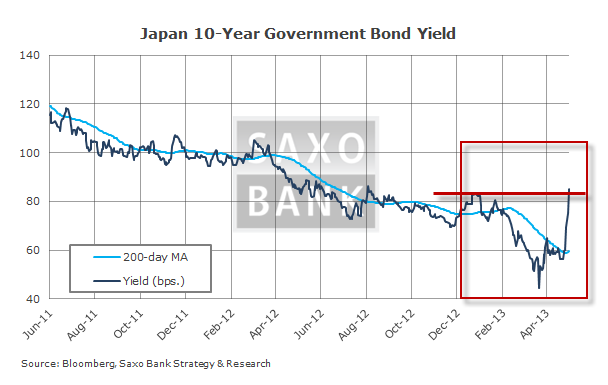Almost exactly a month ago, the BOJ surprised most analysts with an unexpected increase in its asset purchase agreement by JPY10 trillion bringing the total to JPY80 trillion. There was one small problem though: the entire impact of the additional easing fizzled in under half a day, or 9 hours to be precise. This was, as Art Cashin summarized the following day, Japan's failed QE 8. It is now a month later, and with nothing changed in the global race to debase status quo, the time has come for the BOJ to attempt QE 9. Or that's the case at least according to the toothless Japanese government, which has formally demanded that Shirakawa do a nine-peat of what has been a flawed policy response for over 30 years now, this time with another JPY 20 trillion, or double the last month's intervention. Because according to Japanese Senkei, it is now Japan's turn to pull a Chuck Schumer and demand even mor-er eternity-er QE out of monetary authority of the endlessly deflating country. In reverting to the Moore's law of failed monetarism, we expect that a QE 9 out of Japan will have the same halflife as QE 8, if indeed the program size is double the last. At which point it will again fizzle.
From Senkei via Bloomberg:
•Govt. is asking Bank of Japan to increase its asset-purchase program by 20t yen, Sankei reports, citing an unnamed government official.
•Program would be increased to 100t yen from current 80t yen: Sankei
•Increased fund likely to be used to purchase long-term JGBs, ETFs and J-Reits: Sankei
•BOJ is expected to lower economic growth, inflation forecasts in an economic report due Oct. 30: Sankei
...





